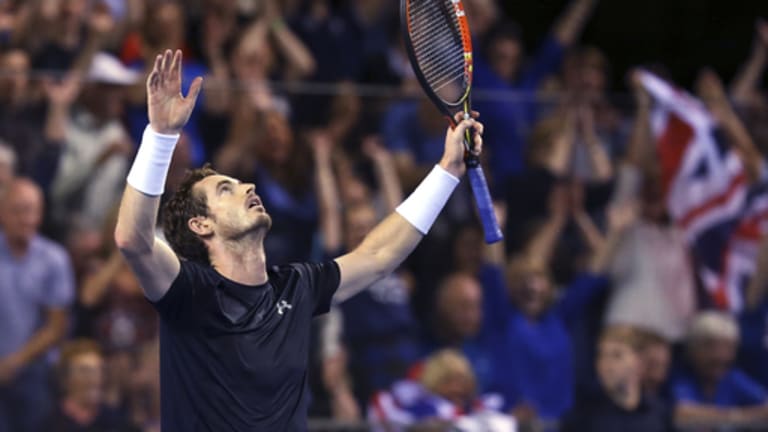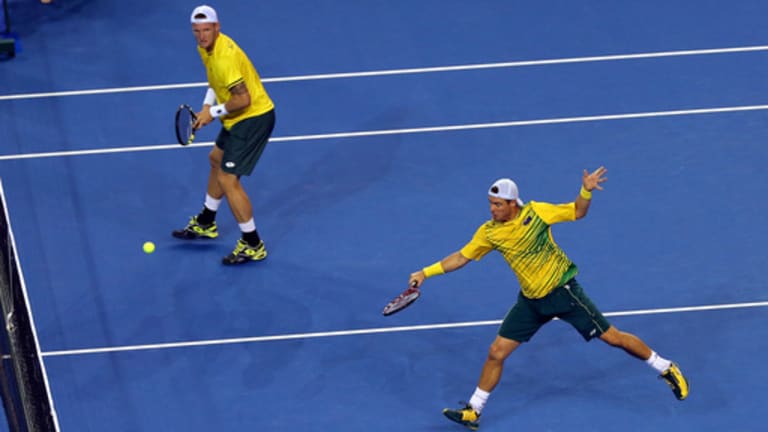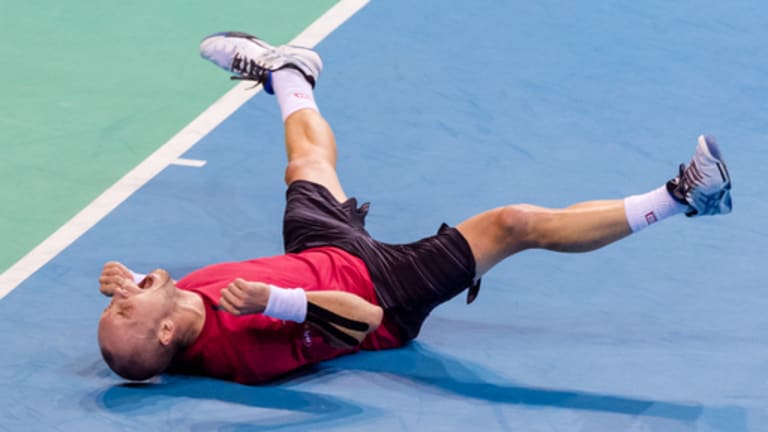This isn't just true of players, it's true of fans as well. By early Sunday afternoon, I had finished watching my tape of Murray disposing of Tomic, and had assumed that Argentina, which led Belgium 2-1 after the doubles, had done the same and advanced to the final. Then I learned on Twitter that Belgium’s Steve Darcis was serving for the match, and the tie, against Federico Delbonis. Up until then, Darcis had been the weekend's anti-Murray, losing in singles and doubles. Now he had a chance to be the hero in the fifth rubber.
By the time I turned to the match, Darcis and Delbonis were at 5-4, 15-15 in the fourth and the Belgian crowd was on its feet—more than that, it looked like they were ready, en masse, to leap onto the court. And why not? They were about to reach their first Davis Cup final in 111 years. From my perspective, this was exciting, obviously, but it was also nerve-wracking. Could I deal with seeing Darcis blow it and lose? Was I ready to have my pleasant, low-stakes Sunday upended? When Darcis did lose that game, after holding two match points, I had to change the channel. I couldn’t see that crowd walk away disappointed. I couldn’t watch a fifth set.
But I couldn’t stay away, either. I turned back as the two players entered a fourth-set tiebreaker, but I kept the remote in my hand in case Darcis fell behind. Fortunately, he never did, and fortunately I got to see his final overhead winner, and his final leap of joy.
Darcis had come through, but Delbonis had pushed him to the limit; he had made him hit one more shot to clinch it. Here was a chance, at a time when just a few top male players dominate, to see two journeyman show us their best on one of the game’s great stages, to perform with the whole tennis world watching. Here was a chance, at a time of few surprises in men’s tennis, to see a genuinely surprising Davis Cup final take shape, between Great Britain and Belgium.
And here was a chance to see 59th-ranked Steve Darcis overcome his nerves and play a perfect point to win the tie—I’m not even sure how he held the racquet steady on that final smash. His diving celebration, and the pandemonium in the arena, ended up reverberating through my Sunday. Davis Cup hadn't let me down.


